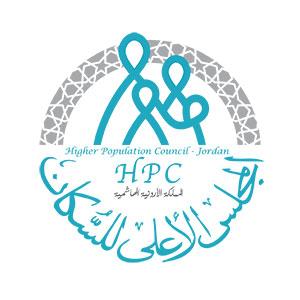

The Higher Population Council participated in a workshop on "Health Care for Refugees in Humanitarian Crisis Situations" organized by the University of Edinburgh in Scotland during the period (4-5 July 2019).
The workshop, conducted by the University of Edinburgh in cooperation with Makerere University, the Andrade Ugandan Association, Aman Jordan Association and Yarmouk University, aimed to discuss the main findings of a study on the "quality of reproductive health services for urban adolescent refugees in Uganda and Jordan". The workshop received support from several Ugandan and Jordanian entities including HPC. Furthermore, the workshop discussed and addressed the broader context of health care for refugees in humanitarian crisis situations.
During her speech, HPC Secretary, Dr. Abla Amawi, stressed that the main challenges facing the provision of reproductive health care for adolescent Syrian refugees in Jordan are the limited number of studies that focused on Syrian refugees, especially in the area of health, including reproductive health of adolescent refugees, the low priority of reproductive health in families due to the difficult circumstances that they are experiencing, the absence of youth-friendly health clinics that provide services in this area, the lack of trained health service providers to deal with this group, the lack of data and information available on them and the failure to properly address and discuss these topics in school curiculla.
Amawi added that some of the main challenges facing adolescent Syrian refugees in Jordan in relation to providing reproductive health care are the lack of reliable and science-based information on their reproductive health, the lack of family dialogue on these issues and the reliance of adolescents on their peers or social networks to obtain such information which might be wrong. Other challenges include the difficulty of detecting and addressing cases of gender-based violence due to social and cultural constraints as well as the impact of altering national refugee policies on their access to services, especially in urban areas.
Amawi stated that despite all the difficult economic conditions it is facing, Jordan is nevertheless spending every effort to provide the best services to Syrian refugees, including health care. Refugees living in camps enjoy free health care services and 55% of Syrians in Jordan enjoy health insurance, compared to 68% of Jordanians, as indicated by the 2015 General Population and Housing Census.
Amawi emphasized that Jordan is implementing a series of programs in the field of reproductive health services for adolescent refugees; the most important of which is the Jordanian Response Plan for the Syrian Crisis (2018-2020) which focuses on enhancing services provided for Syrian refugees, including health services provided by government institutions and improving services provided to them in rural health centers. In addition to the Jordanian National Plan for the Implementation of UN Security Council Resolution “1325” on Women, Peace and security. Some of the main objectives of this plan are to provide responsive and gender-sensitive humanitarian services (such as psychological, social, legal and medical services) and facilitate safe access to such services especially by refugee and Jordanian women and girls who are most vulnerable to violence and in need of protection in host communities and refugee camps in Jordan, as well as a range of services provided by the Ministry of Health in cooperation with UNFPA in this field and services provided by civil society organizations and international entities.
Amawi stressed the need to provide adequate reproductive health services in public and private health centers for refugee adolescents and activating the role of the Ministry of Education to address reproductive health issues in school curricula, as well as the integration of young people's reproductive health needs into national strategies, agendas, sectoral and strategic plans and development programs implemented in host communities.
Amawi also voiced out the need to support education, information and communication campaigns on the benefits of reproductive health services and when and where these services are provided in both urban areas and the Zaatari refugee camp as well as the need to promote community outreach, participation and services in parallel with campaigns and improve the health care environment by providing adequate numbers of specialized staff.







